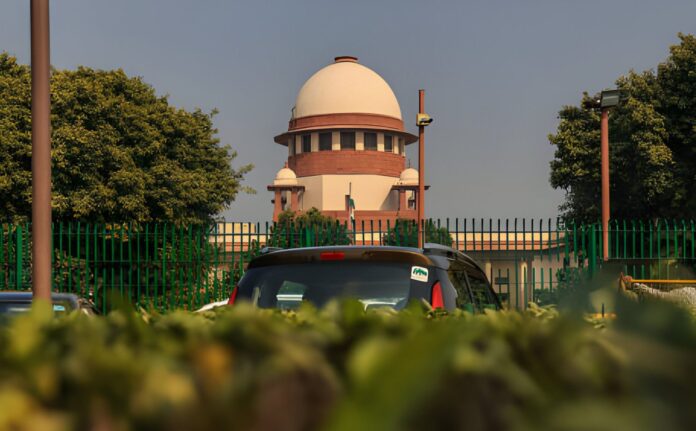Centre files caveat; multiple petitioners, including MPs and clerics’ bodies, challenge new law as discriminatory
The Supreme Court is likely to hear petitions challenging the recent amendments to the Waqf law on April 15, 2025.
The date has been auto-generated by the court’s computerised listing system, and the exact date will be confirmed once the top court publishes its cause list.
Meanwhile, the Centre on Tuesday approached the court with a caveat—a request to be heard before any orders are passed on the pending batch of writ petitions challenging the amended Act.
On Monday, Chief Justice Sanjiv Khanna had said he would consider listing the petitions for hearing.
The CJI conveyed this to senior advocate Kapil Sibal, who raised the matter before a Supreme Court bench presided over by him. Sibal informed the bench that a petition had been filed by Maulana Arshad Madani, president of the Jamiat Ulema-i-Hind, a body of Muslim clerics.
Several petitions have already been filed before the Supreme Court challenging the constitutional validity of the Waqf (Amendment) Act, which received the President’s assent on April 5.
The petitioners include Lok Sabha MPs Asaduddin Owaisi and Mohammad Jawed, the Indian Union Muslim League, DMK’s A. Raja, AAP MLA Amanatullah Khan, the Muslim clerics’ body Samastha Kerala Jem-iyyathul Ulama, the All India Muslim Personal Law Board (AIMPLB), and the NGO Association for Protection of Civil Rights, among others.
The petitioners argue that the Act is manifestly arbitrary, perpetuates discrimination on the grounds of religion, violates the Shariat Act, and deprives the Muslim community of its right to manage its own religious institutions.
President Droupadi Murmu gave her assent to the Waqf (Amendment) Bill, 2025, on April 5 after it was passed by both Houses of Parliament.
The Bill was cleared in the Rajya Sabha with 128 members voting in favour and 95 opposing it. In the Lok Sabha, it was passed with 288 votes in support and 232 against.









